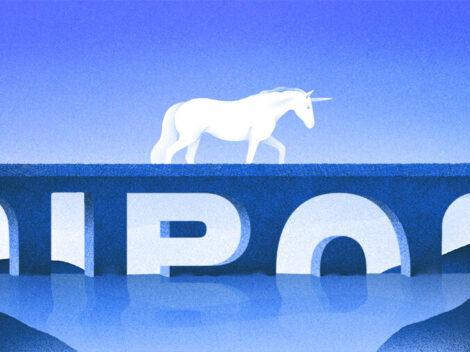These days, we hear a lot about companies seeing soaring valuations as a result of their artificial intelligence prowess. It’s easy to get the impression that an AI-focused business model is the most direct route to investors’ hearts.
In reality, however, investors aren’t so easily swayed. Scores of venture-backed companies touting artificial intelligence technologies have shuttered or seen valuations plummet in the past few quarters. Such cases are particularly visible among those that went public during the 2021 SPAC boom.
One of the most prominent recent casualties is Babylon Health, a U.K.-based digital health startup with a self-described mission “to make high-quality healthcare accessible and affordable for everyone on Earth.” The company, once valued at over $2 billion, filed for bankruptcy last month.
It turns out, an artificial intelligence focus didn’t prevent Babylon’s fall. The company mentioned “AI” no fewer than 25 times in its 2021 filing for a public offering. Prior to that, it raised more than $600 million in venture funding around its pitch to leverage artificial intelligence to provide digital health diagnoses.
Members of the herd
The list of fallen unicorns and near-unicorns that touted their artificial intelligence creds is by no means limited to Babylon. Using Crunchbase data, we put together a few examples from the wreckage of the SPAC boom.
BuzzFeed: The New York-based clickbait pioneer got plenty of attention earlier this year for its move to produce and publish more AI-generated content. Wall Street reacted with a shrug. Today, BuzzFeed shares trade for around 40 cents each — close to their all-time low.
Metromile: The insurance upstart, known for pay-per-mile auto policies paired with tracking devices, raised hundreds of millions in venture funding before going public in early 2021. Yet even though Metromile has a long history of touting its AI chops, the San Francisco-based company floundered on the public market. It sold to fellow insurtech Lemonade last year at a valuation lower than its cash balance.
AppHarvest: Kentucky-based AppHarvest took a heavily tech-driven approach to the business of growing tomatoes and other crops indoors. Investors were initially on board. It raised more than $100 million in venture funding, plus hundreds of millions more through a SPAC merger. The company used some of that capital to buy Root AI, an artificial intelligence farming startup, but buzz around the technology didn’t serve to boost shares. AppHarvest filed for bankruptcy in July.
Embark: Embark Technology, also known as Embark Trucks, snagged a sky-high valuation at the peak of the SPAC boom. The pre-revenue company boasted an initial market cap of more than $5 billion, amid broad enthusiasm for its application of machine-learning technology to bring self-driving capability to long-haul trucking. It worked out poorly, with shares of the San Francisco-based company sliding over 98% in subsequent months. This culminated with a decision this year to wind down operations, followed by an agreement to sell assets at a fraction their former value.
Berkshire Grey: Bedford, Massachusetts-based Berkshire Grey pitches itself as a player at the intersection of AI and robotics, with technologies geared at automating supply chain and e-commerce fulfillment operations. The company went public via SPAC in 2021 at an initial $2.7 billion valuation, but quickly saw share values plummet. Early this year, key backer SoftBank agreed to take the company private, paying $375 million for the 71% of the company it didn’t already own.
That’s just a partial list of AI flops
The companies listed above aren’t the only brands vested in AI that failed to set the markets on fire. As we observed a few months ago, the most highly valued artificial intelligence-oriented companies to go public between 2020 and 2022 are trading well below their initial offering prices.
In private markets too, some formerly buzzy AI startups have also posted disappointing performance and seen valuations fall. They will not be the last.
Sporadic startup implosions, however, don’t say much about whether the recent spike in AI-related investment will generate venture-worthy returns. In every technology cycle, some ambitious upstarts thrive, others fall and still others manage to keep plodding along. This time, it appears, is no different.
Related Reading
- AI’s Share Of US Startup Funding Doubled In 2023
- Many Of 2021’s IPOs Have Flopped. What Does That Mean For 2023’s Hopefuls?
- A Bunch Of AI-Related Companies Are Going Public Via SPAC
Illustration: Dom Guzman
Search less. Close more.
Grow your revenue with all-in-one prospecting solutions powered by the leader in private-company data.

Stay up to date with recent funding rounds, acquisitions, and more with the Crunchbase Daily.


![Illustration of remote meet on cellphone, unicorn chess piece and money. [Dom Guzman]](https://news.crunchbase.com/wp-content/uploads/business-strategy-470x352.jpg)








67.1K Followers